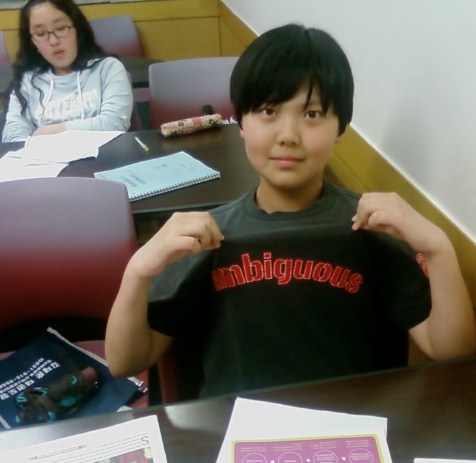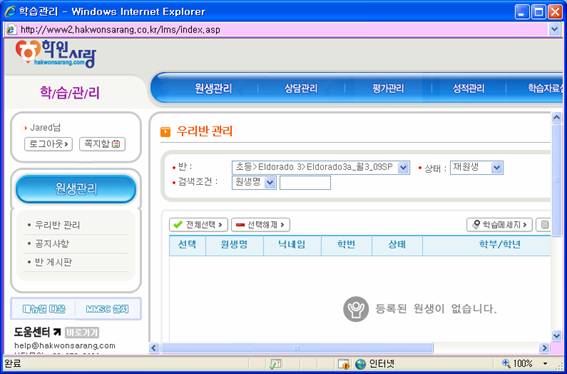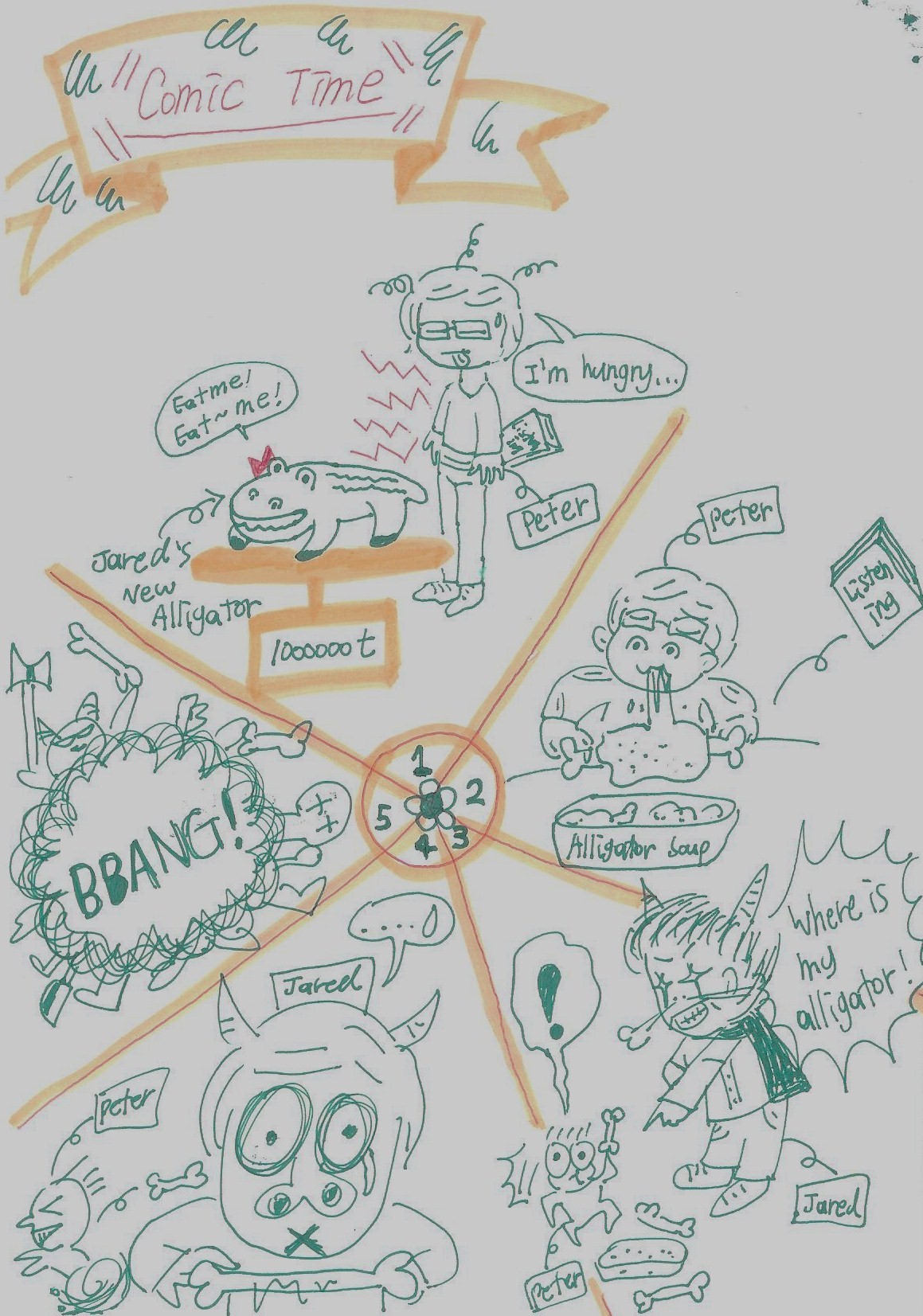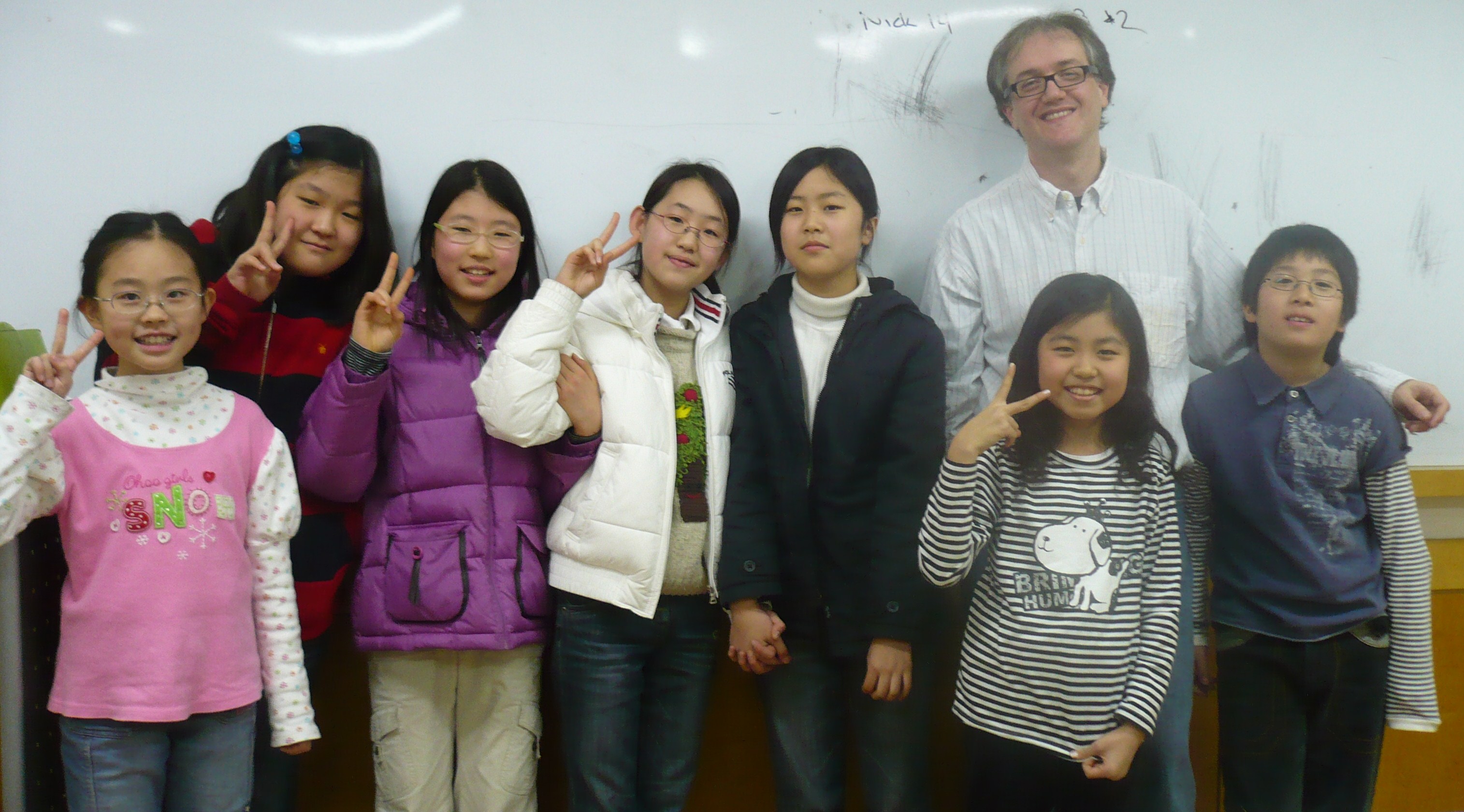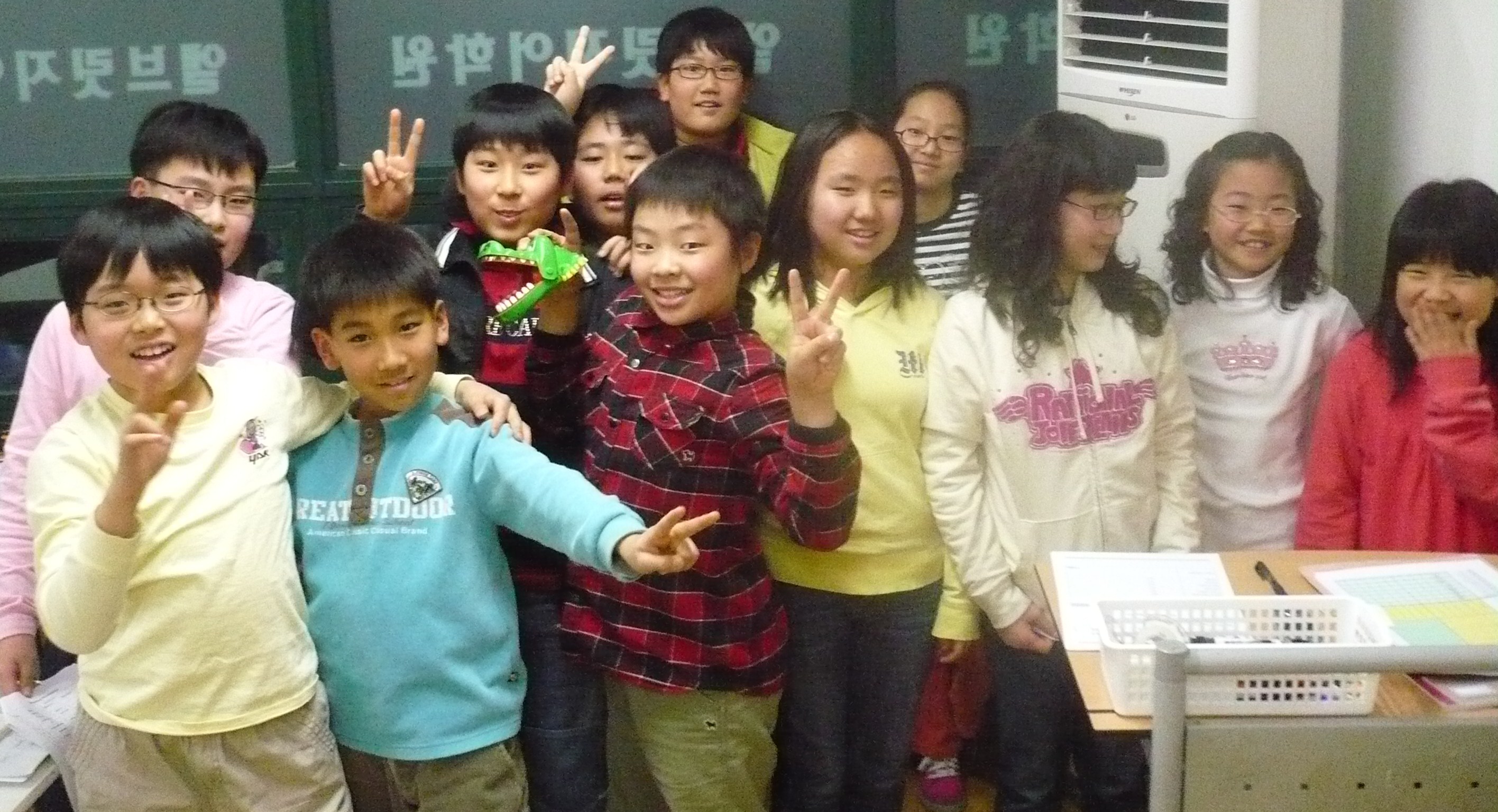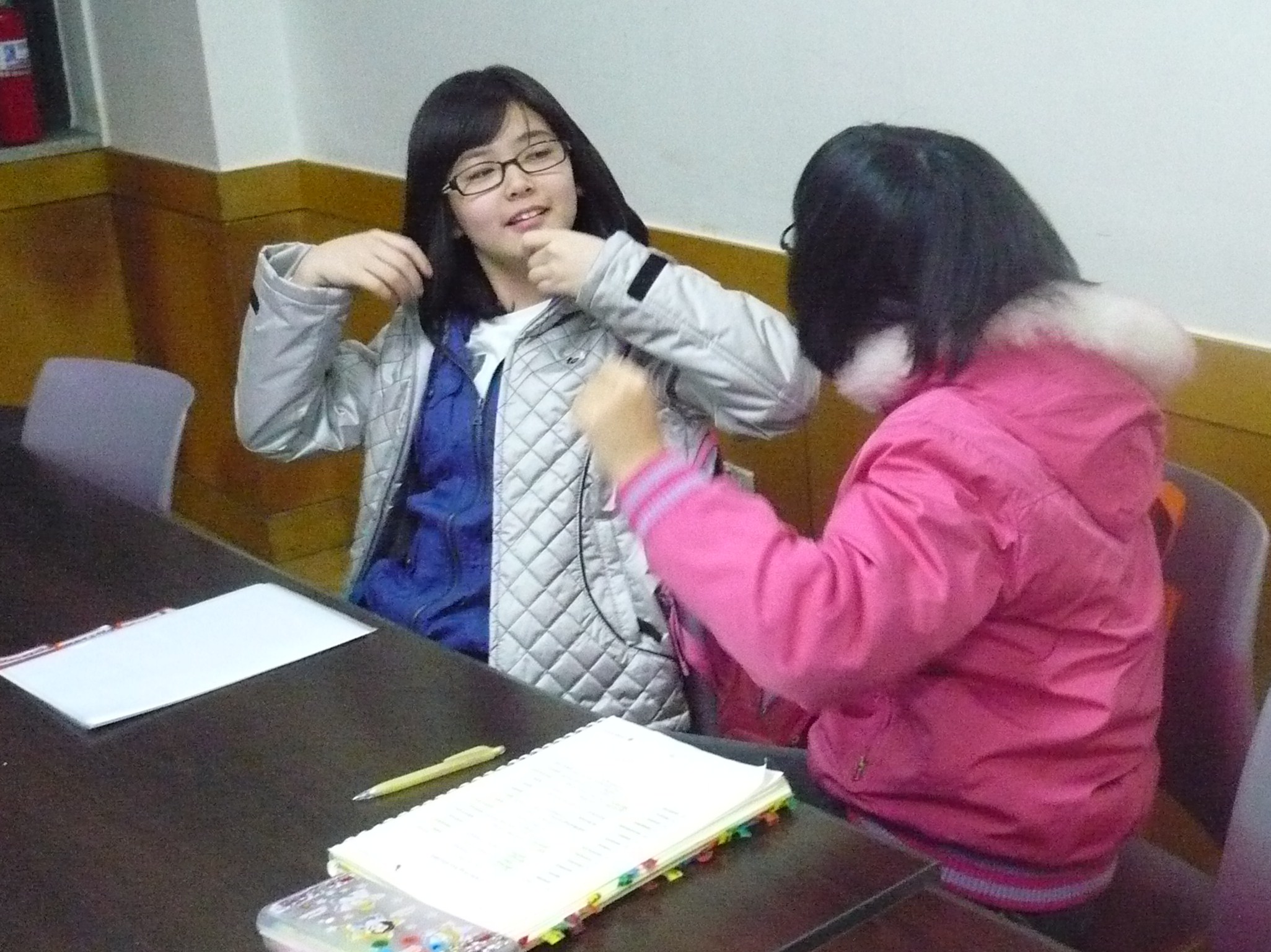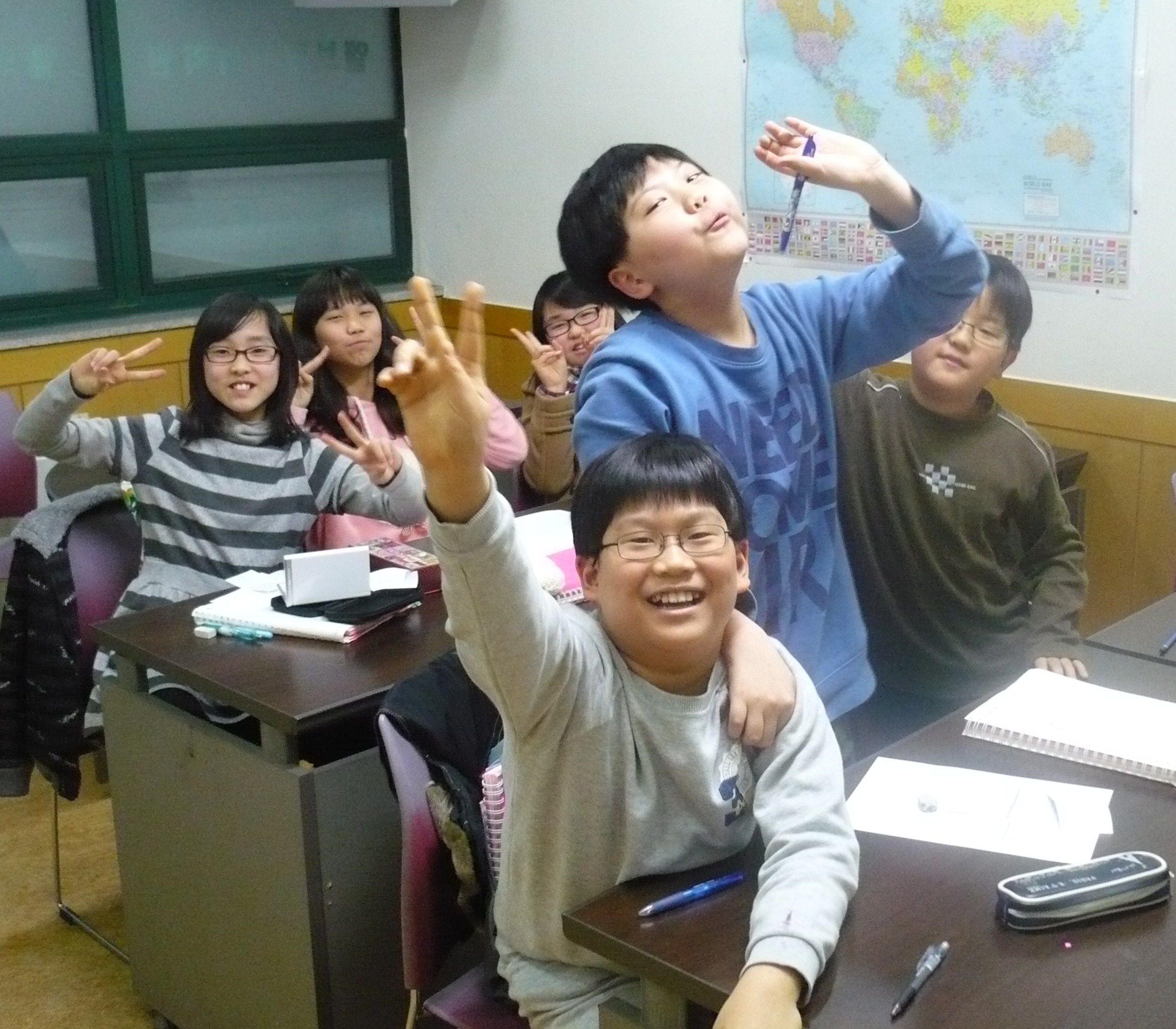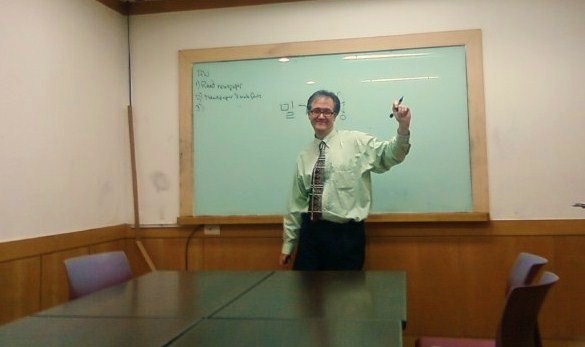I have a small class where I teach students skills for the speaking component of the iBT (internet-based Test of English as Foreign Language, by New Jersey's ETS, the creators of SAT, GRE, and all kinds of other fun tests). These are 5th and 6th graders, and the weirdness of teaching them to take the TOEFL is immeasurable.
The TOEFL is intended to be a college-enterance exam for non-native speakers of English, to establish ability level appropriate for American University work. But Koreans love tests, and they love pushing their children hard. So they figure, the earlier the better, right?
These kids, in terms of basic English ability, are perfectly capable of getting mediocre to good scores on something like the TOEFL. But the problem is with topic. Because the test is intended for university-age students, sometimes the kids have no experiential basis for trying to answer the questions put to them. What does it mean to ask a 5th grader if she wants to get married right after college or have a career first? What does it mean to ask a 6th grader if they like having a roommate in the dorms? How can they say whether they're more interested in going to a small or large university?
We've been working on "type 2" questions, lately. Sometimes, they're called "Choice" questions or "preference" questions. Below is a sampling, which I've compiled and edited from various random sources, or thought up myself based on what I've seen of typical "type 2" content. Imagine trying to coach 5th and 6th graders into making concise little 45-second speeches on these topics. Whether they're perfect native speakers or Koreans doesn't matter – the problem is that so often, the content just doesn't "work" for that age level.
1. Some people prefer to live in a small town. Others prefer to live in a big city. Which place would you prefer to live in?
2. Would you prefer to do an important college assignment as part of a team with other students, or individually on your own?
3. Some students get their best study done at night. Others prefer to study during the day. Which time do you prefer for getting study done?
4. Would you prefer to run your own private business or work for a large company with many employees?
5. Some people prefer to eat at food stands or restaurants. Other people prefer to prepare and eat food at home. Which do you prefer?
6. Would you prefer to go on a trip overseas to a new country with a companion you know, or just by yourself?
7. Some students go directly to the teacher with questions about their course work. Others prefer to ask their classmates first. Which do you prefer?
8. During your spare time, would you prefer to watch a movie or read a book?
9. Some students try to combine part-time work and study, while others prefer to study only and work later once their courses are finished. Which do you prefer?
10. Would you prefer to go on a long trip by car or by train?
11. Some people like to stick to tasks they know they can do well. Others like to try new things and take risks. Which do you prefer?
12. Which kind of job would you prefer: a job that is uninteresting but has a high salary, or a job you really enjoy with a moderate salary?
13. Some people like to hurry and get things done as quickly as possible. Others prefer to take their time and get things done at a slower pace. Which do you prefer?
14. Do you prefer friends who are intelligent, or friends who are reliable?
15. Some students try to do moderate amounts of homework on a daily basis. Others prefer to get their homework done in one go over 1-2 days. Which do you prefer?
16. If you went to study in a different country with a different culture, would you prefer to adapt yourself to the new culture, or concentrate more on maintaining your own culture?
17. Some people like to keep up with current news by reading newspapers. Others prefer to read about the news online. Which do you prefer?
18. Would you prefer to do a course that involves lectures and tutorials onsite, or a course that is conducted online via distance learning?
19. When shopping, some people use brand names to help them decide what to buy. Other people go only by price. Which do you prefer?
20. Many universities offer intensive courses during the summer and winter periods. Would you prefer to take an intensive course durung the summer or the winter vacation period?
21. Some people like living in the center of cities close to downtown areas. Others prefer to live further out in the suburbs. Which do you prefer?
22. Some people give money as gifts to friends. Others try to give a specific kind of present. Which kind of gift do you prefer giving to a friend?
23. To find out about a course subject, would you prefer to go and ask a teacher about it, or talk to a student who has already taken the subject?
24. Some students like to use the library to do most of their research. Others prefer to do most of their research using the Internet. Which do you prefer?
25. Some people like to spend their leisure time outdoors, while others prefer to spend it indoors. Which do you prefer?
26. Would you prefer to spend your vacation period at home with family, or go on a trip somewhere with close friends?
27. Some students prefer lectures where the teacher does all of the talking. Other students prefer classes where students are more interactive and contribute to the lesson. Which do you prefer?
28. Some students like to buy all their own books and keep them after their courses are finished. Others prefer to borrow course books and return them once the course is finished. Which do you prefer?
29. Some people like to get married and start a family while they are still young (under 30 years of age). Others prefer to wait until they are older to start their own family. Which do/would you prefer?
30. Some students like to listen to music while they are studying. Others prefer a very quiet atmosphere for their study. Which do you prefer?
31. Would you like to spend most of your life living and working only in your own country, or would you prefer to spend some time living and working in a new country?
32. Some people enjoy hobbies or sports that are personal and individual. Others like hobbies or sports that involve groups of people. Which do you prefer?
33. Some people want to have specific instructions or directions when they try something new. Other people like to experiment and work things out for themselves. Which do you prefer?
34. Would you prefer to live in an apartment building, or a private house?
35. Some students like to make a specific study schedule for themselves, while others prefer to do their study only when they feel like doing it. Which do you prefer?
36. During discussions, some people like to lead the conversation and do a lot of the talking. Other people prefer to listen more and talk only when they have to. Which do you prefer?
37. For a group assignment, would you prefer to work with a new group of people whom you don't know all that well, or work with your close friends?
38. Some people like to keep a private diary which they don't show to other people. Other people like to start things like online blogs, where other people can read the posts and make comments about them. Which would you prefer to start – a private diary or an online blog?
39. Some students choose courses in order to get good jobs in the future. Other students choose courses that are very interesting to them, even if they don't always lead to good jobs. Which do you prefer?
40. Some universities are small and have only a couple of thousand students on campus. Other universities are very large and have many thousands of students enrolled. Which kind of university do you prefer?

